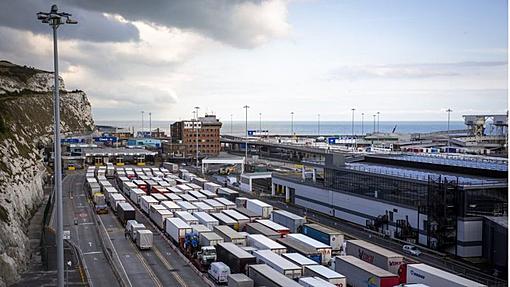Companies need to step up preparations so they are not "caught out" by new post-Brexit trade rules, the government has said.
A public information campaign titled "Time is running out" will urge firms to focus on the 1 January deadline.
However, it is not yet clear exactly what the trading relationship between the UK and the EU will be.
A group representing British businesses said it was no surprise companies were struggling to prepare.
"Many firms will be tired of posturing, cliff edges and deadlines, while others are still grappling with fundamental challenges as a result of the pandemic," said Adam Marshall, director of the British Chambers of Commerce (BCC).
"More businesses will undoubtedly step up preparations for change over the coming weeks, but many are still facing unanswered Brexit questions that have a big impact on their day-to-day operations."
In just over eight weeks' time, the UK will be outside the EU single market and customs union.
Due to this, firms will need to ensure they adhere to new customs procedures, visa, work permits, and immigration rules.
"There's still a lot to do," Elizabeth de Jong, policy director of freight lobby group Logistics UK, told the BBC's Today programme.
The UK's 8,000 hauliers that trade with the EU will need their customers, numbering about 200,000 firms, to provide all the right information before their trucks can enter the EU.
"Whether there's a deal or no deal, many of the things our industry need to do are the same," such as customs declarations and security checks, she said.
A concern is drivers not having all the right paperwork to cross the channel, leading to delays and queuing, she added.
If Britain were to leave the EU at the end of the year without a specific agreement on its trading relationship, firms would be faced with new tariffs and quotas on top of the additional red tape, raising the costs of imports and exports.
For more information, please visit pgslot




 LinkBack URL
LinkBack URL About LinkBacks
About LinkBacks


 Reply With Quote
Reply With Quote